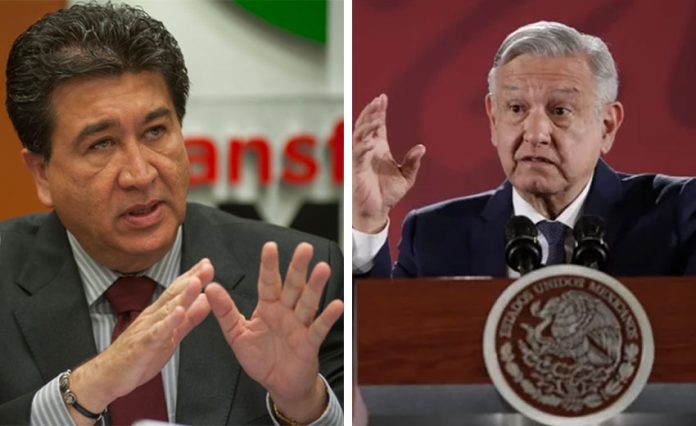Opposition lawmakers criticized President López Obrador on Tuesday for failing to keep a promise made in April to improve security in six months, claiming that the situation has in fact deteriorated.
After the massacre of 13 people at a bar in Minatitlán, Veracruz, in April, López Obrador said the security situation would improve in six months.
The implementation of the government’s social programs, the operation of the National Guard and the elimination of corruption would allow that to occur, he claimed.
But Mexico is on track to record its most violent year in recent history even though homicide numbers have trended downwards since June.
In addition, the government suffered a major embarrassment last week when it took the decision to release Ovidio Guzmán, son of former Sinaloa Cartel leader Joaquín “El Chapo” Guzmán, when faced with an unprecedented show of cartel strength in Culiacán, Sinaloa.
In the lower house of Congress on Tuesday, lawmakers of the Institutional Revolutionary Party (PRI) and National Action Party (PAN) led the criticism of López Obrador.
“He made the commitment that in a period of six months we would see results from the security strategy. That deadline is reached today and the situation we have is a lot worse than what we had then,” said PRI Deputy Héctor Yunes.
“If the government doesn’t recognize its errors, if it doesn’t correct what has failed, this will be the most violent six-year presidential term in the history of the country . . .” he said.
Yunes also accused the government of politicizing the insecurity problem by emphasizing that more than 40% of homicides this year have occurred in Guanajuato, Baja California, México state, Jalisco and Chihuahua, none of which is governed by the ruling Morena party.
On Twitter, he asserted that the federal government’s security strategy has been an abject failure.
“. . . More than 27,000 deaths and a capitulation in the face of organized crime is the outcome of the [security] strategy. Violence and insecurity are worse than ever, according to their own figures,” Yunes wrote.
PAN Deputy Fernando Macías Olvera was similarly forceful in his criticism of López Obrador and his government.
“Exactly six months ago, he promised that today . . . violence and insecurity would end in our country and today we’re worse than ever,” he said.
The lawmaker blasted the president for not recognizing the failures of his security strategy – a day after the Culiacán attacks, López Obrador said it was working “very well” – and for blaming previous governments for the violence plaguing the country.
“He invents data, makes excuses, offers pretexts and blames others but he’s not capable of taking on the biggest responsibility in this country, which is to look after the security of Mexicans,” Macías said.
He also claimed that the government’s decision to release Guzmán amounted to a “peace agreement” with organized crime.
López Obrador responded to the criticism on Wednesday, telling reporters at his regular news conference that citizens remain confident in the government’s security strategy despite the events in Culiacán.
“. . . The people have confidence in this strategy . . . The latest Inegi [national statistics institute] survey says so . . . Of course, [critics] will say that the survey was completed before the events in Culiacán but I would tell them that even with what happened . . . the people continue to support us,” he said.
The president reiterated that the government is “doing well” in the fight against crime even though rates for a range of offenses including homicide, femicide, kidnapping and extortion remain high.
In the face of criticism about the government’s actions in Culiacán, Security Secretary Alfonso Durazo, part of the security cabinet that took the decision to release Guzmán, will appear in the Senate next Tuesday to present a report about the events that took place in the northern city.
He said on Thursday night that the decision to free El Chapo’s 28-year-old son was taken “to try to avoid more violence in the area and preserve the lives of our personnel and recover calm in the city.” López Obrador said he fully supported the decision.
Federal security officials admitted on Friday that the operation to capture Guzmán was poorly planned and hastily executed.
Fourteen people were killed in the wave of violence unleashed by Sinaloa Cartel members in Culiacán, according to state authorities, including a state police officer, a member of the National Guard and four innocent civilians. The rest were suspected cartel gunmen.
Source: El Universal (sp), Milenio (sp)
